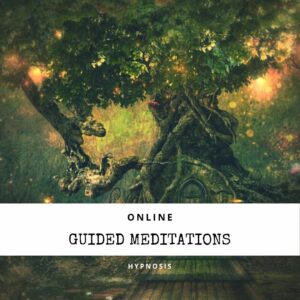Hypnosis Tokyo
Hypnosis Tokyo
Ericksonian clinical hypnosis, Strategic psychotherapy.
Hypnosis Tokyo・Hypnotherapy: Brief, solution-oriented therapy in English & French.
With strategic psychotherapy and clinic hypnotherapy, Emmanuelle Matsumura guides you towards the change you wish: habits, anxiety, phobias, addiction, stress, emotion management.
SESSIONS Hypnosis: Tokyo & Online
Hypnosis Tokyo | Online・In English | Hypnotherapy
Hypnosis has been scientifically proven to be useful with various clinical issues.
What is clinical hypnotherapy?
- In an induced altered state of consciousness, your subconscious is open to learning. It can then receive suggestions that enable you to freely choose new patterns of thinking and functioning.
Your hypnotherapist will tailor a therapeutic plan to meet you where you are, and help you bring about the desired changes in your life.
What is strategic psychology?
- Strategic psychology is a person-oriented form of psychology, specializing in therapy for a wide range of emotional and mental health conditions.
- We invite you to learn how to access more resources than you may think you have, and create new processes within yourself to overcome the challenges and health issues you may encounter in life.
Why consulting Hypnosis Tokyo?
▶ Anxiety, stress
▶ Addiction, phobia
▶ Trauma
▶ Habits & behavior change
▶ Depression
▶ Pain reduction
First Hypnosis Tokyo session
Your hypnotherapist invite you to share the reason of consultation and your expectation.
It allows you to feel comfortable and put words on your issue with a compassionate listening.
Then we establish the therapeutic plan together and the number of sessions needed.
- 1 st session: 1H45
- Next: 50minutes
How many hypnotherapy sessions?
In a few session only, you might notice significant change in your life. Different perspectives of the world and vision of the self.
3 to 6 session per issue. Overcoming some more complexe issue can require around 12 sessions in brief therapy.
Most people also decide to keep working together on other behaviors and patterns.
"Hypnosis allows the subconscious and the conscious mind to unify"
What can you learn with hypnosis and strategic psychotherapy?
Before knowing, we do not know. And isn’t it true to say that we learn all along our life?
Therapy is learning, and learning is a process.
Sometimes, based on the environment we evolved, we simply do not know how to cope with things we go through. Such as how to deal with fears, manage emotions and thoughts… Or you know in a certain situation, but in another specific one you cannot access the ressources.
In therapy, you will learn some process, strategies and way to access to new ressources.
What benefits to expect with clinical hypnotherapy?
Hypnosis can help you in many aspect of your life and is also quite educative. The brain has neuro plasticity, we use this ability. Creating neural pathway within you, opening new ways around you!
You therapist belong to the neo Ericksonian hypnosis and strategic psychotherapy approach, a non scripted based hypnosis, and solution oriented psychotherapy. She trained at the Institute of Applied Psychology [Australia]
She offers you tailor mades hypnosis therapeutic plan to meet you where you are, and helps you to induce change in your life.
The approach of your hypnotherapist・Tokyo, Online
YOUR HYPNOTHERAPIST
Emmanuelle Matsumura got her certification at the Institute of Applied Psychology [Australia] which is government accredited.
Your hypnotherapist belongs to the Neo-Ericksonian approach to clinical hypnosis and strategic psychotherapy. Non-scripted hypnosis and solution-focused psychotherapy.
She offers customized hypnosis and individualised treatment plan to meet you where you are, and helps you induce changes in your life.

CLINICAL HYPNOTHERAPY
She uses hypnotherapy to help solve clinical problems, with active, non-judgmental and benevolent listening. In a state of light trance, she invite you to embrace the possibility of accessing your resources and creating new, positive patterns of functioning together. Sessions are 100% personalized and delivered in a safe, comfortable environment.
ETHICS OF HYPNOTHERAPY
Everything shared on the form and in session is confidential.
Unlike the fees charged in some countries ($180 ~ $450), we strive to keep our hypnosis sessions in Tokyo and online affordable.
Session fee・Hypnosis Tokyo
TOKYO PARAMEDI・Yoyogi station
- 1st session: ¥20000
- Others: ¥12000
OTOMI THERAPY・Mitaka station / ONLINE
- 1st session: ¥16000
- Others: ¥10000
RECORD OF THE HYPNOSIS SESSION
Hypnosis sessions in Tokyo can be recorded for an additional fee: you can access them on request, so you can listen to the session several times before coming to the next one (highly recommended for integration through repetition).
- ¥4000 / 30€
“Life is not something you can answer today. You should enjoy the process of waiting, the process of becoming who you are. There’s nothing more enjoyable than planting flower seeds and not knowing what kind of flowers will appear.” H.Erickson
Hypnosis and hypnotherapy: what is its origin and history?
THE BEGINNINGS OF HYPNOSIS
- Franz Anton Mesmer (1734 – 1815), with his development of the concept of “animal magnetism”, is the precursor of hypnotism. However, the term hypnotism and the technique itself were developed by James Braid in the first part of the 19th century, following research into hysteria by Jean-Martin Charcot, nicknamed the “father of modern neurology“.
- His pupil, Pierre Janet, a pioneer of psychotherapy, used the term “subconscious” and emphasized the concept of psychological dissociation. Sigmund Freud, in the early 20th century, took an interest in Charcot and Bernheim’s research before devoting himself to psychoanalysis, while Emile Coué was working at the same time on the theory of “conscious autosuggestion”.
HYPNOSIS IN THE TREATMENT OF POST-TRAUMATIC STRESS DISORDER
- After the First World War, various therapeutic methods were developed to help war survivors overcome post-traumatic stress, known as “shell shock”, including the use of hypnosis. At this time, behavioral psychologist Clark L. Hull published the first scientific studies on hypnosis.
- Ernest Hilgard, who conducted research with André Weitzenhoer, developed a “neo-dissociationalist” theory of hypnosis. He worked on pain control, and William Kroger focused on hypnosis in medical settings.
- Martin T. Orne‘s work on the distortion of memories by hypnosis in police investigations is also worthy of mention.
HYPNOTHERAPY: THE SECOND GENERATION
- The second generation of hypnotherapists arrived with the influential Milton Erickson (1901 – 1980), who developed “indirect” suggestion and a more permissive approach.This was the birth of the Ericksonian approach, sharing some major differences with the traditional hypnotherapy practiced before him.
- The Milton Erickson Foundation was created to preserve his work and organize the world’s largest conferences and training courses.
MODERN HYPNOTHERAPY OR NEO-ERICKSONIAN HYPNOSIS
- Today, we can speak of neo-Ericksonian or 3rd-generation hypnosis. Numerous contributors are to be mentioned in the development of different therapeutic approaches such as family and strategic therapy, NLP, self-relations and generative trance, inclusive therapy and possibility therapy.
- We can mention J. Haley, R. Bandler and J. Grinder, S. Gilligan, B. O’Hanlon and Ernest Rossi, pioneer of the psychobiology of mind-body healing. Of course, there are many more names to mention as hypnotherapy’s research and popularity expand worldwide.
- In Australia, where I was certified in Ericksonian Clinical Hypnosis (National Diploma), we can mention “Gordon Young” (strategic hypnotherapy) who himself trained with Hilton Erickson’s direct students at the foundation in the UK.His contribution is significant in that he created a comprehensive, structured method to help Ericksonian hypnosis practitioners integrate this approach, which is different from traditional hypnosis in that it is script-free and “person-oriented“.
ONLINE HYPNOTHERAPY
For smaller budgets, we offer guided meditation sessions –> DISCOVER HERE <–
In no way replaces an Ericksonian clinical hypnosis session, but teaches you to access the altered state of consciousness.



